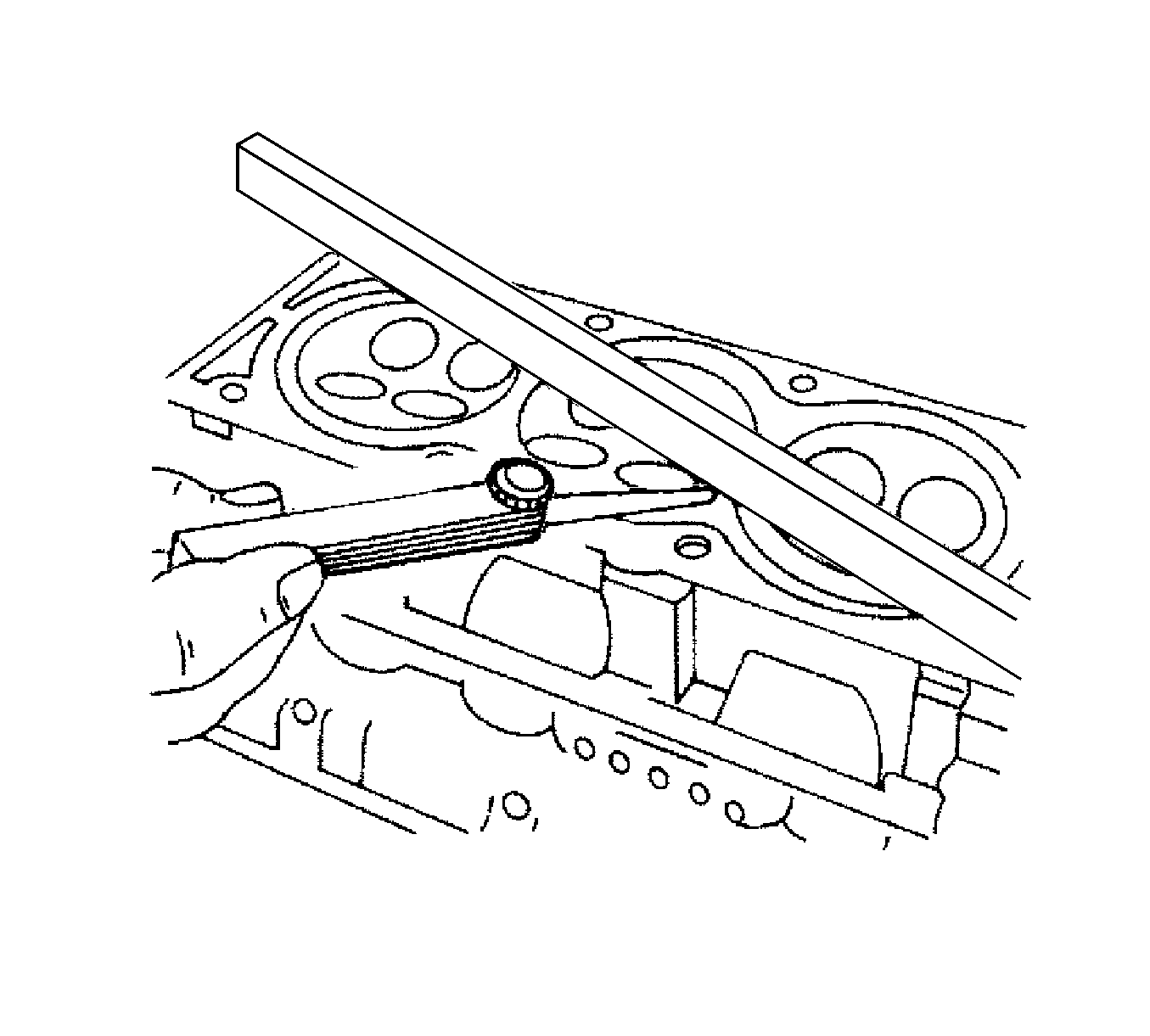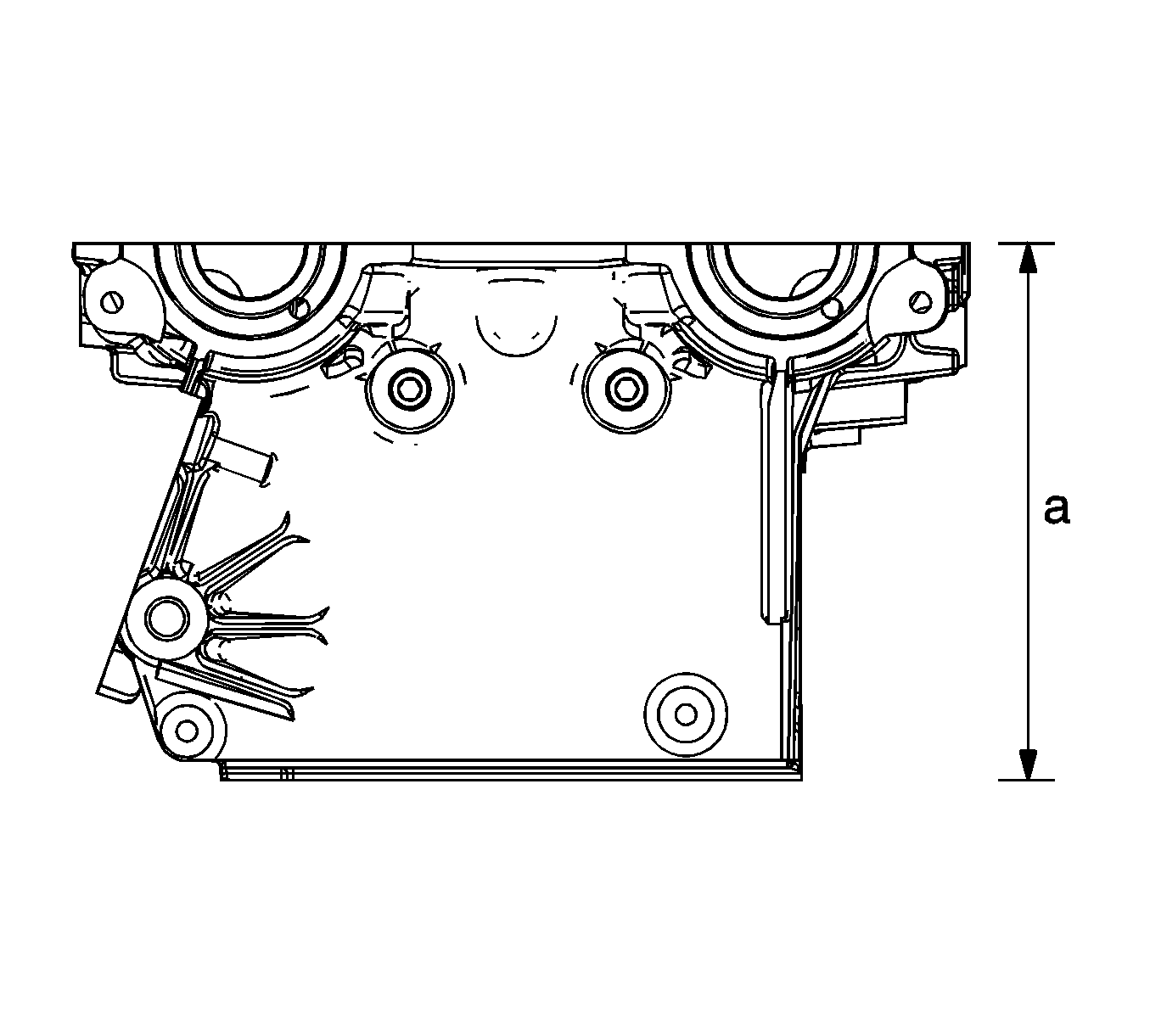Inspection Procedure

Note: Take extreme care to prevent any scratches, nicks or damage to the cylinder head surface.
- Clean the sealing surfaces.
- Inspect the cylinder head for the following:
| • | Cracks, damage or pitting in the combustion chambers. |
| • | Debris in the oil galleries. Continue to clean the galleries until all debris is removed. |
| • | Coolant leaks or damage to the deck face sealing surface. |
| • | Damage to any gasket surfaces. |
| • | Damage to any threaded bolt holes. |
| • | Burnt or eroded areas in the combustion chamber. |
| • | Cracks in the exhaust ports and combustion chambers. |
| • | External cracks in the water passages. |
| • | Restrictions in the intake or exhaust passages. |
| • | Restrictions in the cooling system passages. |
| • | Rusted, damaged or leaking core plugs. |
- If the cylinder head is cracked or damaged, it must be replaced. No welding or patching of the cylinder head is recommended.
- Measure the clearance between the straight-edge and the cylinder head deck face using a feeler gauge at four points along the straight-edge.
- Check the sealing surfaces for deformation and warping. The cylinder head sealing surfaces (include the intake and exhaust sealing surfaces) must be flat within the specification. Refer to
Engine Mechanical Specifications.
- Remove the intake and exhaust camshafts. Refer to
Camshaft Replacement.

- Measure the height of the cylinder head from sealing surface to sealing surface. The cylinder head height should be within specifications. Replace the cylinder
head. If the cylinder head height is out of specifications, replace the cylinder head. Refer to
Engine Mechanical Specifications.


